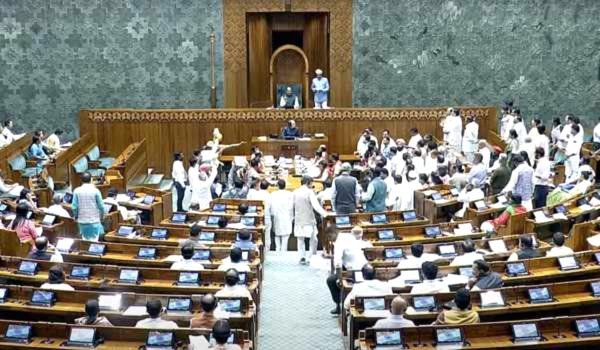New Delhi, Dec 3 (UNI) The Banking Laws (Amendment) Bill, 2024 was passed in the Lok Sabha on Tuesday with voice vote proposing significant changes in to banking regulations including increase in number of nominees up to four for bank accounts or fixed deposits and also simplifying the procedure for fund distribution in case of death of account holder.
As the banking sector has evolved over the years and with a view to improve bank governance and investor’s protection, it has become necessary to make certain amendments in the Reserve Bank of India Act, 1934, the Banking Regulation Act, 1949 (the “BR Act”), the State Bank of India Act, 1955, the Banking Companies (Acquisition and Transfer of Undertakings) Act, 1970 and the Banking Companies (Acquisition and Transfer of Undertakings) Act,1980, as per the Statement of Objects and Reasons.
The Bill, passed in the Lok Sabha will, inter alia, improve governance standards, provide consistency in reporting by banks to the RBI, ensure better protection for depositors and investors, improve audit quality in public sector banks, bring customer convenience in respect of nominations and to provide for increase in the tenure of the directors in co-operative banks.
Replying to the debate on the Bill, Finance Minister Nirmala Sitharaman said depositors will have the option of successive or simultaneous nomination facility, while locker holders will have only successive nomination. “…since 2014, the Government and the RBI have been extremely cautious, so that banks remain stable,” Ms Sitharaman said in the House.
The intention behind bringing this amendment is to keep the banks safe, stable, healthy she said.
The salient features of the amendments in the said Bill, inter alia, are—amending the clause of the BR Act so as to redefine “substantial interest” by way of increasing the threshold for shareholding of a beneficial interest by an individual (for bank directorship) from Rs five lakhs to Rs two crore to reflect the present value.
Rs five lakh limit was fixed nearly six decades ago in 1968.
The Bill also proposed to amend the clause of the Banking Regulation Act, increasing the tenure of directors (excluding the chairman and whole-time director) in co-operative banks from eight years to ten years, so as to align with the Constitution (Ninety-Seventh Amendment) Act, 2011.
The Bill also paves way and allow a director of a central co-operative bank to serve on the board of a state co-operative bank.
The bill also seeks to give greater freedom to banks in deciding the remuneration to be paid to statutory auditors.
The Bill will revise the reporting dates for the submission of statutory reports by banks to the Reserve Bank of India, so as to align them to the last day of the fortnight or month or quarter, to ensure consistency in reporting.
The Bill also seeks to amend a section of the State Bank of India Act, 1955, section 10B of the Banking Companies (Acquisition and Transfer of Undertakings) Act, 1970 and section 10B of the Banking Companies (Acquisition and Transfer of Undertakings) Act, 1980, so as to provide for the transfer of unclaimed dividends, shares, and interest or redemption of bonds to the Investor Education and Protection Fund, and allow individuals to claim transfers or refunds from that fund.
“The proposed amendments will strengthen governance in the banking sector and enhance customer convenience with respect to nomination and protection of investors,” Sitharaman said while moving the bill for consideration and passing.










